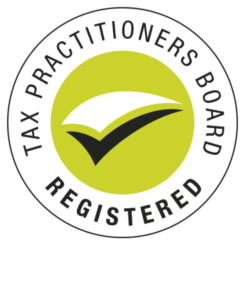How Much Super Should I Have At 60? General Superannuation Advice
According to ASFA’s June 2024 data, a modest retirement at age 65 costs about $33,134 per year for a single person and $47,731 for a couple.
For a more comfortable retirement at age 67, ASFA recommends saving around $595,000 if you’re single or $690,000 for a couple.
Planning for retirement can be difficult, and 55% of Australians are unsure if they’ll have enough saved.
Everyone’s idea of retirement is different, some want to travel or stay active, while others look forward to relaxing or spending time with family. That’s why it’s important to think about the lifestyle you want, so you can plan your super accordingly.
Super Required To Retire At 60
Many Australians hope to retire by age 60 and many ask the question ‘how much super should I have at 60?’ But the amount needed depends on the type of lifestyle they want in retirement.
Estimates suggest that to retire comfortably at 60, a single person may need around $515,000 in super, providing an income of approximately $52,000 per year. For couples, a combined super balance of about $660,000 may be needed to generate a yearly income of around $72,000.
The Association of Superannuation Funds of Australia (ASFA) outlines two main standards of retirement lifestyles to help guide retirement planning:

superannuation For A Modest Retirement
A modest retirement account allows for a lifestyle that is slightly better than relying only on the Age Pension, though it still requires careful budgeting. According to ASFA, this means an annual income of approximately $33,386 for a single person and $48,184 for a couple.
superannuation For A Comfortable Retirement
A comfortable retirement allows for a higher quality of life, with more flexibility for activities like travel, dining out, and leisure. According to ASFA, this equates to an annual income of approximately $52,383 for a single person and $73,875 for a couple.
How Much Will I Need In Retirement?
It’s one of the most common questions about retirement, but there’s no single answer that suits everyone. This short guide outlines the key factors to consider and provides helpful tools and resources to support you in finding the right answer for your personal situation.
Working Out How Much You’ll Need In Your retirement account To Retire At 60
You can estimate how much you’ll need in retirement by creating a budget based on your expected annual living expenses. This includes:
- Everyday costs such as groceries, utilities, and other bills
- Larger expenses like travel, leisure activities, inflation, and healthcare
For Australians planning to retire at 60, it’s wise to prepare for at least 20 to 30 years of income. While you can access your super from age 60, the Age Pension (if you’re eligible) isn’t available until you reach age 67.

Average Super Most People Have?
The Australian Bureau of Statistics (ABS) has calculated the average super balances for each age group. It’s important to note that many Australians may be falling behind where they ideally should be. Take a look to see how your balance compares:
| Age | Average balance (men) | Average balance (women) |
|---|---|---|
| 15-24 | $6,500 | $5,100 |
| 25-34 | $42,100 | $34,500 |
| 35-44 | $107,700 | $76,900 |
| 45-54 | $219,300 | $136,000 |
| 55-64 | $326,200 | $246,300 |
| 65-74 | $435,900 | $381,700 |
| 75 and over | $370,900 | $314,100 |
Ways To Grow Your Super For retirement planning
If your super balance isn’t where you’d like it to be, there are several strategies you can use to help grow it over time:
- Consolidate your super accounts: Bringing all your super into one account can reduce fees and make it easier to manage. You can search for lost or forgotten super and consolidate it through online through myGov or with the assistance of a financial adviser.
- Make salary sacrifice contributions: Contributing to your super from your before-tax salary can lower your taxable income while helping your retirement savings grow.
- Make voluntary contributions: Adding even small amounts from your after-tax income on a regular basis can make a significant difference over time. You may also be able to claim a tax deduction for these contributions.
- Contribute to your spouse’s super: Making contributions to your partner’s super could make you eligible for a tax offset of up to $540.
You can also speak to you local financial advisor on how to grow your super.

FAQ
How Much Money Do You Need To Retire At 60?
It depends on how you want to live and what money goals you have for the future and your retirement accounts.
Can I Retire At 60 With A super balance Of $500,000?
To retire at age 60 with an annual income of approximately $52,000, you would need around $515,000 in superannuation. This figure, which includes a combination of super drawdown and Age Pension payments, aligns with ASFA’s estimate for a comfortable retirement for a single person.
Can A Couple Retire At 60 With $500,000?
A couple could retire with $500,000 in super and receive an income of around $63,000 per year through a combination of super drawdown and Age Pension payments. However, this amount falls below the ASFA Retirement Standard, which estimates $73,875 per year is needed for a comfortable retirement for a couple.
How Much Super Should My Employer Pay Me?
Under Superannuation Guarantee (SG) rules, your employer is required to contribute at least 12% of your ordinary time earnings to your superannuation.
Ordinary time earnings include your regular hours of work, along with over-award payments, shift loadings, commissions, bonuses, and paid leave.
If your employment agreement or award specifies a superannuation rate higher than 12%, your employer is obligated to pay the higher rate.
What If The Gender Super Gap Affects Me?
On average, women tend to have a less super amount than men, a difference known as the gender super gap. This gap can be caused by several factors, including:
- Lower average earnings
- Part-time or casual employment
- Time taken out of the workforce for parenting or caregiving, often without receiving super contributions from a partner
There are strategies that can help reduce the gender super gap and boost your super balance over time.
It’s a good idea to seek financial advice to explore the options that best suit your situation.



